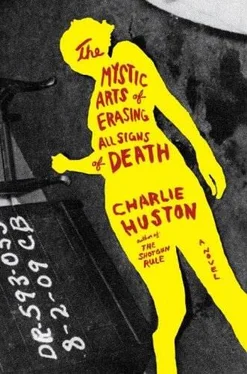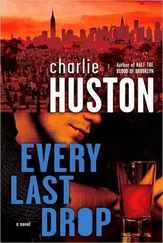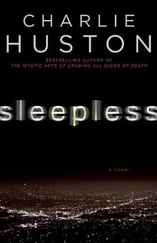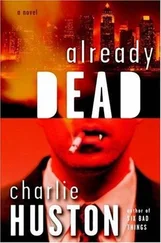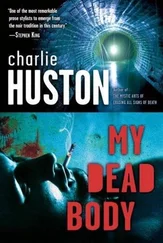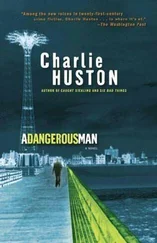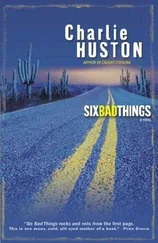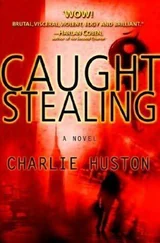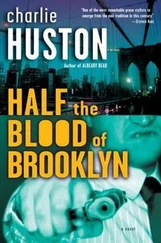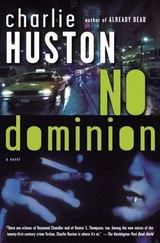– Nothing. Certainly. Why should a janitor be anything but aimless? The freedoms of the laboring class. Why fill the off hours with knowledge and investigation, with self-improvement? To what end, after all? Nothing. Indeed.
I leaned over on my stool and took a toothpick from the dispenser on the shelf next to the menus. The waiters were coming on for dinner service, I watched one use an ice cream scoop on a tub of refrigerated butter, plopping the perfect little balls into white dishes. Another slid trays of dinner salads into the stand-fridge. The manager chalked specials on a board. A couple regulars came in and the bartender started making their drinks without being asked.
I looked at L.L. reading Anna Karenina. I thought about Anna throwing herself under her train. I thought about the shower of blood and brain on the bedroom wall of the house in Malibu. I thought about the putrid stain the pack rat left on the floor in Koreatown.
I picked my teeth.
– Guess I was just thinking about you, L.L. Thought I'd come by and see how you're doing.
He glanced at me, eyes peering just over the top of his glasses. He signaled the bartender and looked back down at his book.
– A banner day. Another beer is surely in order.
L.L. wrote the screenplay, and it was a hit.
It was read by everyone in Hollywood. Dad became the hottest writer in town. Coppola tapped him to adapt Travels with Charley. Redford wanted to know if he'd brush up a remake of The Heart of the Matter. Michael Cimino was looking to do the life of Jim Thomson. Robert Evans thought he'd snagged the Holy Grail, the rights to The Catcher in the Rye. Did L.L. want first crack? Anything and everything with a whiff of the literary, L.L. Crows was at the top of the list to write, adapt, brush up, or take a pass at.
And he took every job. And he wrote some of the most consistently excellent and praised screenplays Hollywood has ever seen. And not a fucking one was ever produced. Nothing that he got screen credit for, anyway. But in the ‘70s, and through most of the ‘80s, his red pencil marks had decorated, and vastly improved, he'd be sure to inform you, the pages of a small forest's worth of scripts. Some good, some pure ass. Several Oscar nominees, and a few winners. Not that he gave a fuck one way or another. Because they weren't his stories. He was just the hired gun, getting richer than any human could pray to a fat and greedy Jesus to get.
His story, his admired and lauded screenplay of his one and only novel, walked up and down the runway and had its skirt lifted by every A-list studio/actor/director/producer in town with a yen to take on the what had become the greatest movie never made, and while it had more than a few dollar bills stuffed in its panties, no big spender ever stepped up to throw down for a trip to the champagne lounge.
A source, one might say, of some slight bitterness in years to come.
– And what are you reading these days?
I looked up from the copy of Down and Out in Paris and London that I'd taken from his pile. I'd scooted over to the stool next to L.L. to make room for a couple that was waiting for a table. Full dinner service in swing, Chez Jay went from elbow room empty to sardine can packed in less than an hour. I'd forgotten.
Sitting at his side, reading silently, sipping at a beer, it came back.
Childhood revisited.
I closed the book.
– Horror mostly.
He rubbed his forehead, kept his eyes in his own book.
– Dare I ask by whom written?
– Whatever. Stephen King, Joe Lansdale, Clive Barker.
He winced.
– Web. Ambrose Bierce, Lovecraft, Stoker, for God sake.
I went on.
– Dean Koontz, Kellerman.
– Edgar Allan Poe, ever heard of him? J. S. LeFanu? Algernon Blackwood?
– James Herbert. Straub.
He slammed his book closed.
– Are you trying to kill me? Did you come here solely to antagonize me and rub my face in your ignorance? Certain tales by Mark Twain, Charles Dickens, Edith Wharton for fuck sake, all horror of the highest order. Dear God, Webster, Henry James! Shirley Jackson! Or in later years, Harlan Ellison, Bradbury, Matheson!
I slammed my own book.
– I'm not looking for fucking enlightenment, I'm looking to turn my fucking brain off for a couple hours!
He rose from his stool.
– Turn your hrain off? Turn your?
He began collecting his books.
– Well, I have news for you, Web.
He cradled the books and put his face in mine.
– You have fucking well succeeded at that!
Heads had turned, the manager was coming over.
L.L. took a thick roll of bills from the hip pocket of his faded and baggy madras shorts and flipped a couple hundreds on the bar.
– Sorry about the fracas, Ernesto. My son is a mongoloid, and if I don't speak at a certain volume and pitch he can't understand human speech.
Exit, L. L. Crows, having added to his great legacy of closing lines.
I never heard about how great teaching was when I was a little kid. By then, the mid-eighties, he was one of the senior script doctors of the industry, a go-to guy when a little class was needed on a project, making an obscene living tweaking other writers’ illiteracies. All I heard about was how vital the movies were.
People say escapism as if it were some foul bane. As if the denizens of this weary world were not deserving of some surcease and ease. They say it as if that is the only virtue the cinema might possess. As if it is not the great art form of the twentieth century. As if Godard and Fellini and Hitchcock and Cassavetes and Bergman and Altman and Wilder never walked the earth. One movie, one, of only moderate success, it touches more lives than I touched in nearly fifteen years of teaching. The years I toiled in that cesspool of incompetence and mediocrity called the public schools. I shudder, Web. My bowels turn to water when I think of what I might have accomplished. But no regrets, regrets are for small men with minor minds. We, my boy, we are for scaling mountains, you and I. We are for leaving monuments. A movie, a film, it is a testament in light and color and sound, a record of achievement, a projection of artistic vision penetrating directly into the brains of the audience. They cannot help but be touched, changed, when our words vibrate their eardrums, when the photons carrying our images strike the rods and cones of their eyes. Filmmaking, Web, let no one tell you otherwise, is a noble endeavor, the surest way for giant men to leave their marks upon the landscape of human emotions.
Delivered as he drove me around greater Los Angeles in his 560SL, after keeping me home from school so we could go to the NuArt together to see a Michael Curtiz revival, pointing from time to time with the hand that didn't contain a can of beer.
There, at Wilshire ana Crenshaw, the house that served as exterior for Nora Desmond's mansion. There, the rest home Jack and Faye go to in Chinatown. There, the Ennis Brown House, Price's House on Haunted Hill. The Ambassador Hotel, where Anne Bancroft and Hoffman have their affair. Your mom and I fucked there once. Here in San Pedro, right there, they filmed the Skull Island landing in King Kong. This spot here, Hollywood and Sunset, where Griffith built his Babylonian temple and staged the single largest orgy of all time.
Mom was spending most of her time in Big Sur by then, hanging with the Esalen crowd. Yoga and transcendental meditation and organic hummus and mud baths and, I assume, fucking men considerably younger and less caustic than her older and no longer looked-up-to husband.
So she wasn't around when L.L. got the call that his screenplay had finally been green-lighted. She missed the scene when his ghostwriter pals drove up the canyon to drink their way through the case of Krug he opened for the occasion. She missed the following morning when he got the final draft of the script from his agent and found that it had been rewritten five times in the year since it had been most recently optioned; thick batches of colored pages mixed into the script, indicating the many hands that had revised his work. She missed the evisceration he performed on the house after reading the rewrites, while I sat out front on my Big Wheel, and Chev and I listened to him creating a whole new lexicon of cursing. And by the time the movie was made two years year later, with Judd Nelson and Molly Ringwald in the leads, directed by John Badham, she had relinquished claims on communal property and left for Oregon to find her true self, unencumbered by the artificial constraints of marriage and rigidity of bourgeois child-rearing concefts. That final exit relieving her of the scene after L.L. went, hope springs eternal, to the premiere.
Читать дальше
